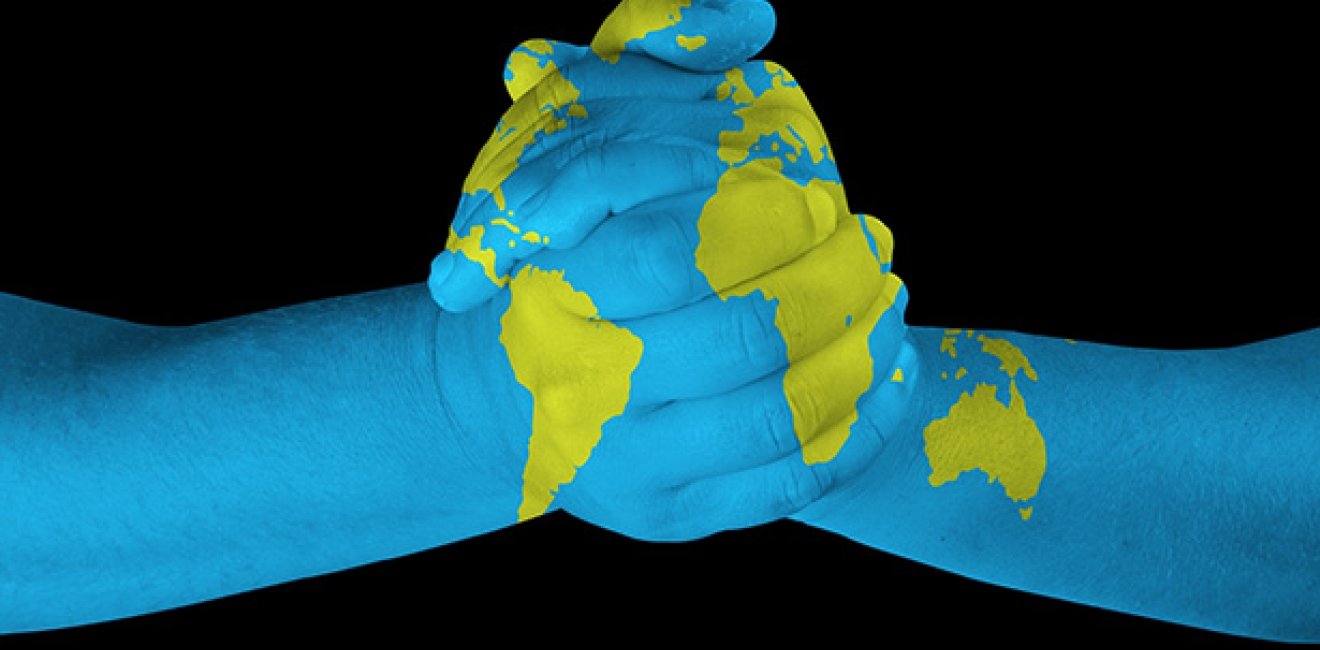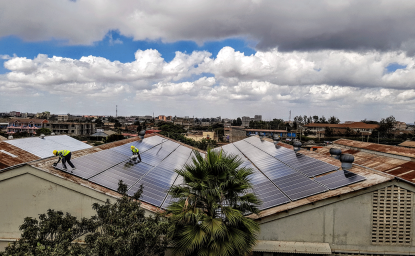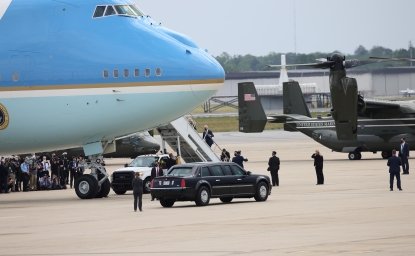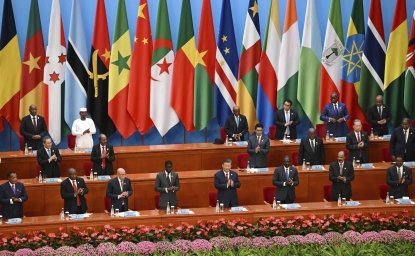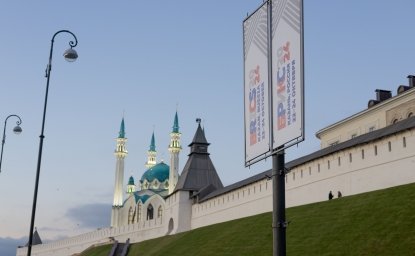
A blog of the Africa Program
The emergence of 'new' international development partners like China, India, Brazil and Turkey has been welcomed across the developing world as representing a window of opportunity for fast-tracking much needed socio-economic development. This is particularly true for Africa where not long ago most countries seemed to be left with no other option but to put up with annoying western conditions and meddling in a bid to continue receiving development assistance. The development cooperation of leading southern states is couched in the rhetoric of South-South cooperation with its attendant principles of solidarity, respect for sovereignty, non-interference, self-reliance and mutual benefit, which stand in sharp contrast to the paternalistic tendency that defined traditional North-South cooperation. It is no wonder therefore that in Africa as in other parts of the developing world, South-South cooperation, as an expression of a re-commitment by countries of the global South to support one another, has gained prominence in development discourses.
However, the excitement over the emergence of alternative development partners has intermittently been dampened by concerns that these southern providers, as they sometimes prefer to call themselves, are not displaying sufficient responsibility in their development cooperation. In this respect, and despite its strong appeal in Africa, the unprecedented involvement of emerging powers in development cooperation is seen to embody a major threat to the relevance and sustainability of the nascent international consensus on the effective delivery of development assistance. How justified is this interpretation of the growing influence of emerging powers in development cooperation? More importantly, how best can complementarity be found between the international development activities of traditional northern donors and their emerging counterparts in the South? Before turning our attention to these questions, it is fitting to first of all provide some context to the new North-South debate on development cooperation.
Until recently, industrialized rich countries of the North have dictated the terms of development cooperation and arrogated unto themselves the role of designing international development policy through the exclusive OECD club and its Development Assistance Committee. Even when critical voices from both donor and recipient countries started questioning the quality and development impact of aid, the policy debate on aid effectiveness was for some time confined to the membership of the OECD-DAC. However, beginning with the Paris session of the OECD's forum on aid effectiveness, invitations for participation have been extended to recipient countries and civil society groups. This 'openness' is especially noticeable in the parallel discussion on engagement in so-called fragile and conflict-affected states, where the OECD-sponsored International Dialogue on Peacebuilding and Statebuilding (IDPS) provides a platform for dialogue involving the self-styled g7+ group of fragile states, the donor community and civil society groups.
Yet, these processes and their outcomes have struggled to shake off perceptions that they are non-inclusive and reflect attempts by the North to continue dominating development and security discourses and policies. Emerging powers, for example, remain lukewarm towards OECD-generated frameworks such as the 2005 Paris Declaration, in which donors committed themselves to uphold the principles of ownership, alignment, harmonization, results and mutual accountability in their development assistance. Although countries like Indonesia and South Africa serve as observers in the OECD Working Party on Aid Effectiveness, and China and Brazil participate in the International Dialogue on Peacebuilding and Statebuilding, it is instructive to note that none of these countries has endorsed the New Deal for Engagement in Fragile States adopted on the side-lines of the 2011 Busan conference on aid effectiveness. The pragmatic engagement of emerging powers in what is perceived as a northern-dominated process can be explained by the stake they continue to have in the current system, as reflected in the fact that some of them remain beneficiaries of OECD assistance. However, it is clear from the reservations recorded in the outcome document of the Busan conference that, insofar as development cooperation is concerned, traditional and emerging powers continue to pull in different directions.
On the one hand, there is mounting pressure from developed countries for southern donors to demonstrate greater transparency and accountability in their development cooperation, most notably in their engagement with fragile and conflict-affected countries. In the current articulation, this translates into, or at least is perceived as, a call for the latter to embrace the OECD-led aid effectiveness architecture and its underlying conception of development cooperation. On the other hand, emerging powers have argued that the OECD development assistance architecture is too process-oriented; while also contending that working within it risks undermining the principles and values of South-South cooperation. In its extreme, this position considers the outreach of the OECD to emerging donors as an attempt to co-opt the latter and check their rise to global influence.
The view that emerging powers need to be more nuanced in their interpretation and application of the principles of South-South cooperation can hardly be faulted. Similarly, the imperative to fast-track economic growth and poverty reduction in least developed countries through deepened South-South development cooperation should not come at the expense of accountable and transparent governance, political inclusiveness, social cohesion and environmental sustainability. Surely, emerging powers, like the established powers of the day, have a moral and strategic responsibility to ensure that their development cooperation does no harm to the targeted societies. But it is also true that the conception of development and peacebuilding upon which the OECD's development assistance processes are premised is not value free or culturally neutral, neither is it universally accepted or has it always produced satisfactory outcomes. Put differently, there is as much to learn from the development cooperation of emerging donors as there is to criticize.
As such, rather than frame the 'dialogue' on aid effectiveness simply as a process of socializing new donors into a supposedly superior regime for greater transparency, coordination and accountability, I believe what is needed is a two-way socialization process that affords emerging and traditional donors alike the opportunity to extract valuable lessons from each other's efforts and experiences, with a view to subjecting their respective development practices to critical reflections. This kind of socialization cannot occur outside the context of what Constantinou and Der Derian have described as sustainable diplomacy, which is premised on the acknowledgment and respect of differences, and a commitment to overcome these through genuine and unending dialogue. Sustainable diplomacy also presupposes that the actors involved would display willingness to accommodate and learn from others, while also being ready to challenge and revise their own way of living and doing things.
Photo credit: Map painted on hands by Chones/Shutterstock.com
The opinions expressed on this blog are solely those of the authors. They do not reflect the views of the Wilson Center or those of Carnegie Corporation of New York. The Wilson Center's Africa Program provides a safe space for various perspectives to be shared and discussed on critical issues of importance to both Africa and the United States.
Author
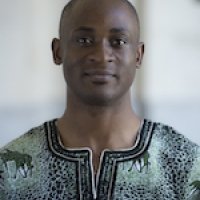
Researcher, Institute for Global Dialogue, South Africa

Africa Program
The Africa Program works to address the most critical issues facing Africa and US-Africa relations, build mutually beneficial US-Africa relations, and enhance knowledge and understanding about Africa in the United States. The Program achieves its mission through in-depth research and analyses, public discussion, working groups, and briefings that bring together policymakers, practitioners, and subject matter experts to analyze and offer practical options for tackling key challenges in Africa and in US-Africa relations. Read more

